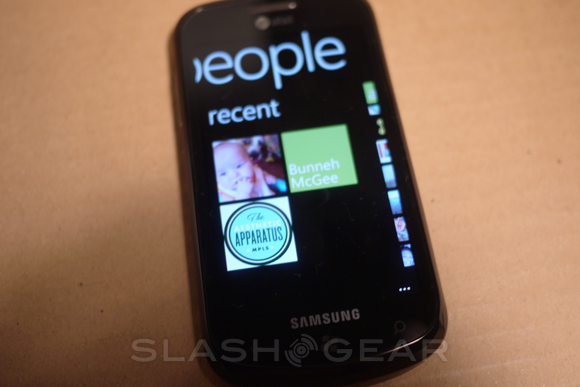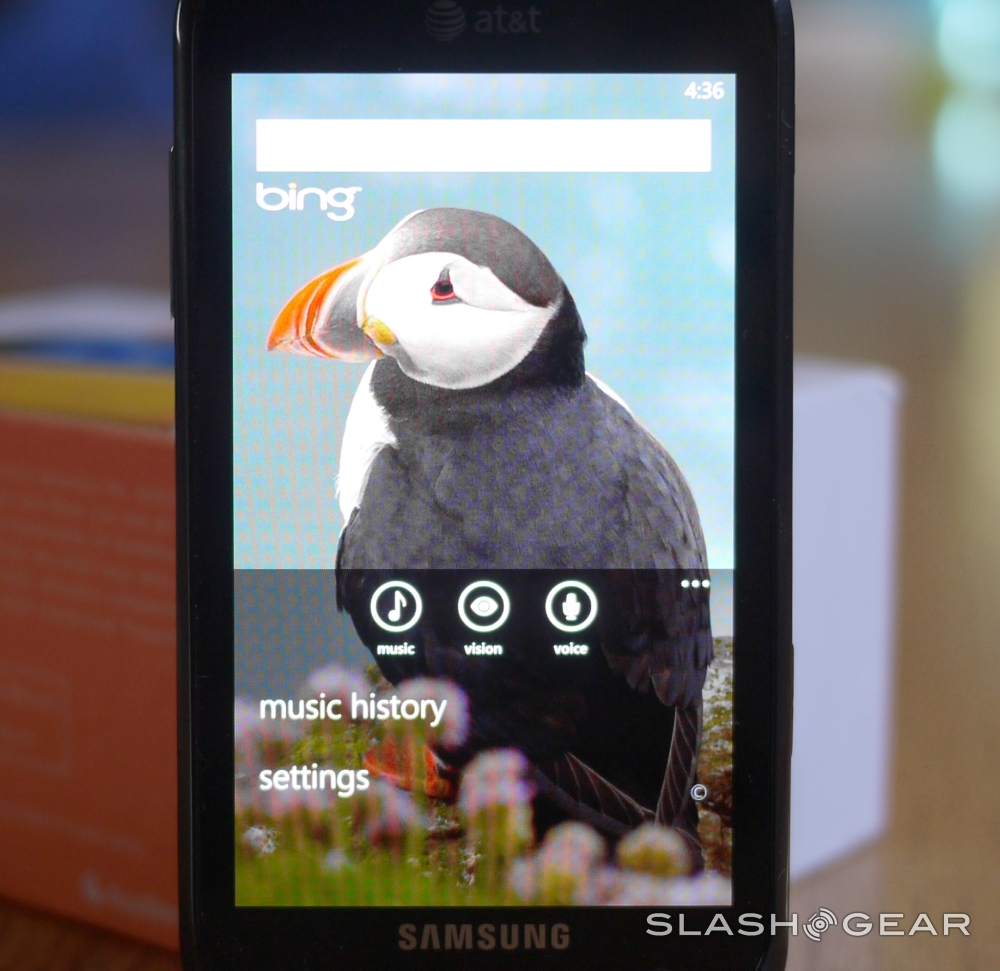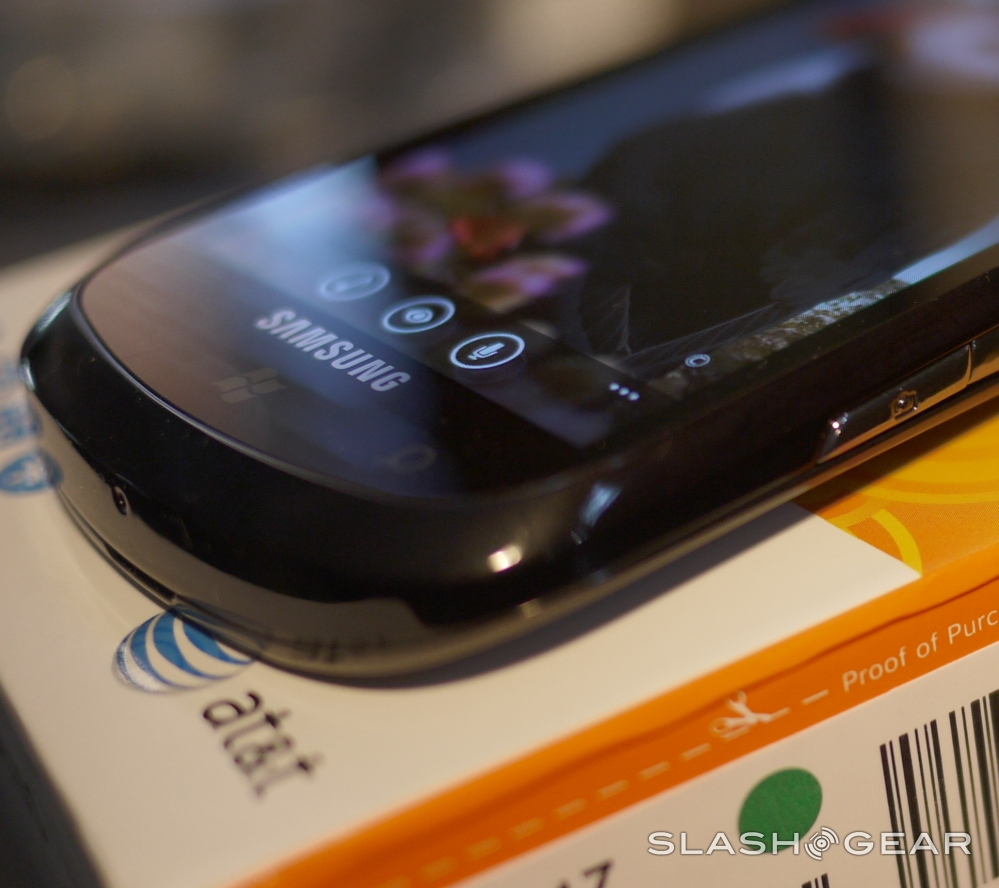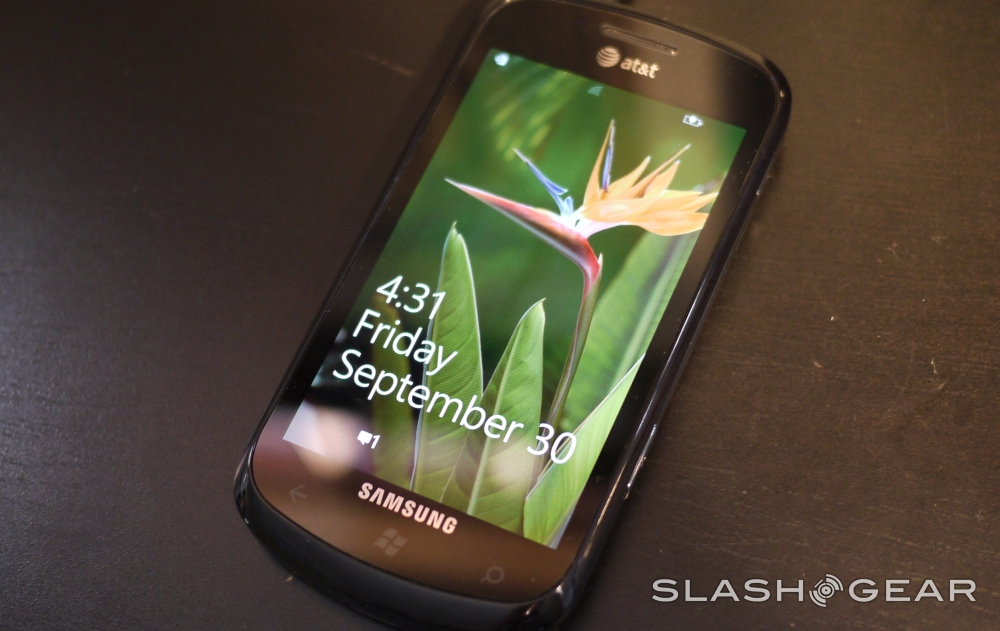Windows Phone 7.5 Mango Review [Video]
It's time for the second coming of Windows Phone 7, a mobile OS that by all means deserves a fair shot at the global market share, but hasn't quite risen to the ranks of iPhone or Android glory – at least not yet. What we're going to do in this post is give the first really big refresh of Microsoft's current mobile OS, Windows Phone 7.5 Mango, a good rundown and review. Because the vast majority of our readers are not yet Windows Phone users, I'll be padding the review with some features that've already been in place for some time – but the focus will, indeed, be on the new list of upgrades as presented in this newest, tastiest flavoring of Windows Phone.
Communications
Your entire communications network is centered around, if you want it, your People Hub. Instead of a contacts list, you have this hub which you'll find on your Start Screen right when you turn your device on for the first time. This tile has, once you activate it, multiple little tiles inside of it flipping on and off with images of your contacts as lifted from several different places: Facebook, Outlook (Exchange and Office 365 included), Windows Live (Hotmail, Xbox LIVE, Messenger, and others included), Google (this has an email icon next to it, but this is connected to your greater Google account which includes Reader, Gmail, all that good stuff,) LinkedIn, and any 3rd party email accounts you may have. Twitter and LinkedIn integration right out of the box are new here in Mango.

One of the neatest features you can now take advantage of is the ability to take contact groups (which you make via your People Hub) and make them their own dedicated tile on your Start Screen. Your group tile (you can make several of them, mind you,) will then live flip through updates from random members of that group the same way a single person tile would, only the name of the Group appears every once in a while now as well. You can then, as per usual, do things like mass email these people if you want to, for instance, invite them to an email party. This can be exceedingly helpful, especially if you're using your device for work (or if you're a student, for class) and have a need for communicating with specific sets of individuals quite often.
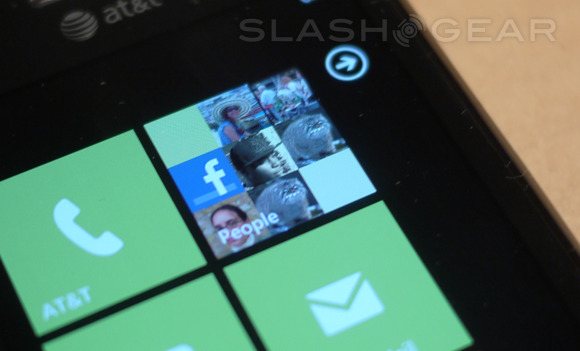
You can also pin an individual to your Start screen, if you did not know, and communication with your people is now advanced to the point of absurd ease – if you want to take the time to configure each person with every account they own, that is. You can switch between Windows Live Messenger Chat, Facebook Chat, Messages, and more, all of it in a single conversation, but the time you must take is still in play: you must add a person to each of these services individually, linking them together under one profile, or the whole switching inside conversations thing doesn't work out as slick as it should.

Messaging is improved as well if you just want to stay in that world – speech-to-text as well as text-to-speech are now both active and working quite well.
Applications
Multitasking – that ever-present goal for every mobile machine maker, that's been improved here in Mango. This version of the OS makes it possible for apps to run in the background (they have to have that ability programmed in, of course, not every app works this way), switching between apps as simple as holding your dedicated BACK button down and flipping back and forth between windows. This is a really ingenious button / functionality combo when you think about it, so smooth in fact, that I'm surprised noone has thought of it before.
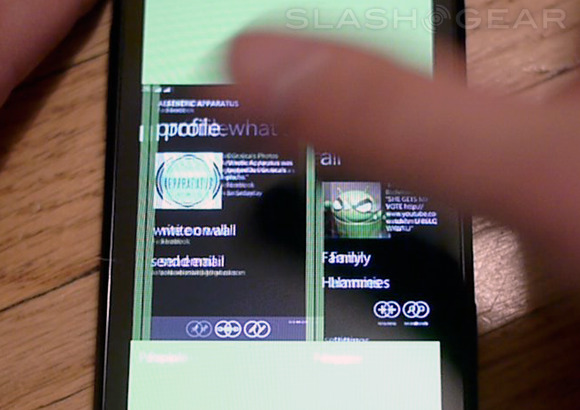
Applications and Hubs are now part of your Search results when its necessary, this bringing the Search function basically a level higher than any other mobile OS on the market today – do you need to search the entire contents of your phone right out of the box, though? Ask a hacker, they'll know. Those having only worked with non-mobile operating systems will find this ability soothing to their claustrophobic senses.
Dynamic Live Tiles have been improved in some small ways that allow them to retrieve information and update themselves without the need for the user to open the app that corresponds with them. For example you can see small status updates from your friends in Facebook without opening a tile that contains your friend. This filters over to the aforementioned Group and individual tiles.
Internet
Your internet browsing has been upgraded with the newest version of Internet Explorer, that being IE9, complete with hardware acceleration and HTML 5. This sounds pretty awesome until you realize that Internet Explorer is no longer at the top of every web designer's list of browsers to optimize for. What this means is that pieces of even the most well-visited websites in the world will be missing in action. On the other hand, this often results in nothing more than the absence of some banners and the missing list of "top posts" here and there. There was a question on one of the threads I was speaking in inside the past week on Facebook games – the answer is no – Facebook games still do not function inside this stock browser. You'll still have to find alternate means, like a full-sized computer and non-mobile OS.
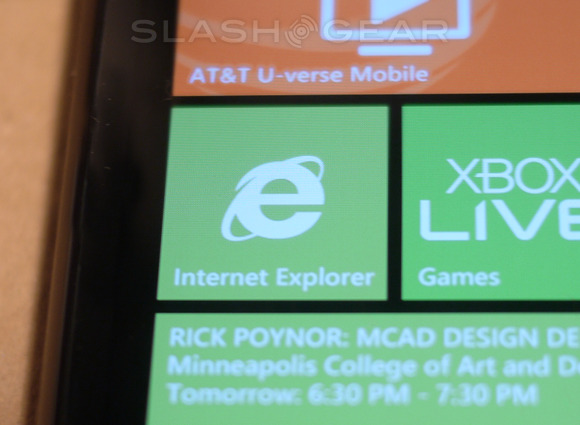
Local Scout is a lovely new app that instantly gives you "highlights" for businesses around your GPS location including reccomendations for shops, activities, and of course restaurants. Each suggestion is displayed as either text or a tile that can then be opened to reveal items like address, directions (instantly through Bing), phone number, "neighborhood" – this being a general indicator of where it is, and category. You can also access "Quick Cards, these being reviews (if there are any) related apps (if there are any) and prices (when applicable). You can also pin the business to your Start Screen if you wish. When the GPS finds you, it finds you well within a big bunch of businesses, that's for sure. On the other hand, I've not yet gotten the opportunity to take it all the way up to the sticks where businesses are light, so we'll have to see how good it REALLY is.
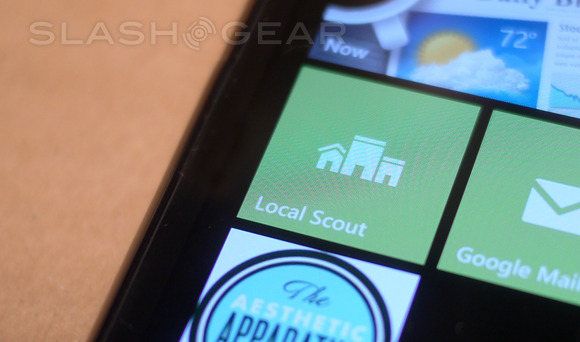
Hitting your search button from, for example, your Start Screen, will launch Bing. From here you can access an expanded number of directories instantly, these including Bing Vision (for scanning products, bar codes, or QR codes,) Music Search and Voice search – these able to tell you what song you seek or get you what you need simply by letting it listen to your quandary. Both work fairly well, with the music searching function not able to figure out which Aphex Twin song I was listening to, but having no problem identifying a Dr Dre song. Music Search then shows you your album cover, title, album title, and allows you to head to the Zune music marketplace to purchase the song (or the whole album) if you'd like to do so.
Hands-on Video Tour
Anything I didn't show in-depth above in images you'll be able to see in the video below. Have a look and see how smooth it all is!
[vms 524fbf7ea5c519ca397e]
Wrap-Up
In all, the Windows Phone platform has been improved in a set of ways that will certainly be appreciated by those that already use Windows Phone devices. I'm not sure that these changes will be enough to attract new customers on their own, but tied in with the rest of the relatively easy to use system, Windows Phone should, by most means, continue to grow throughout the future. Without getting too analytical on the future of the platform, it is, as we've said before, dependent on the developer ecosystem that this platform will succeed in the near and distant future. The more we find developers attaching themselves to the Windows Phone platform, the more users will come with them.
It's no longer just about creating a mobile OS that works, it's about making one that people trust and love as well. Microsoft, continue with the improvements here and there, but direct your power beams at the developers full force if you want gains. That's my best advice and has been my advice since the beginning. Windows Phone users, you're in for a treat, because Windows Phone 7.5 Mango is a sweeter fruit than you've had before. Take a big bite and smile about it.



